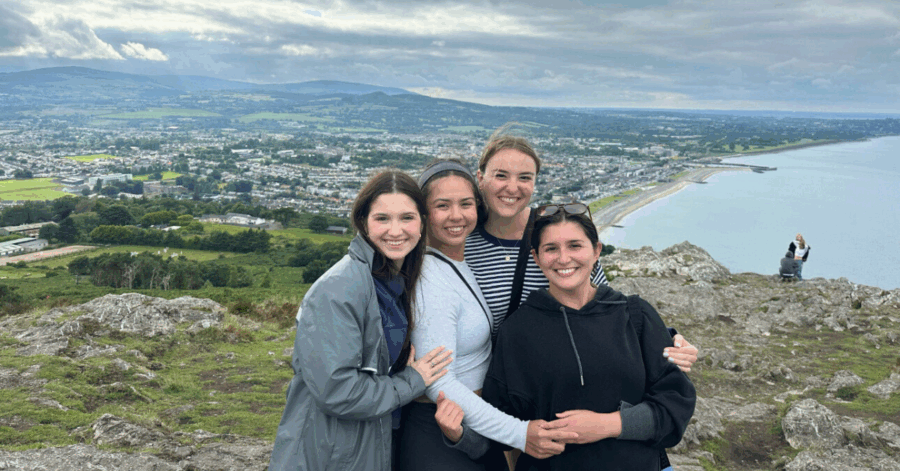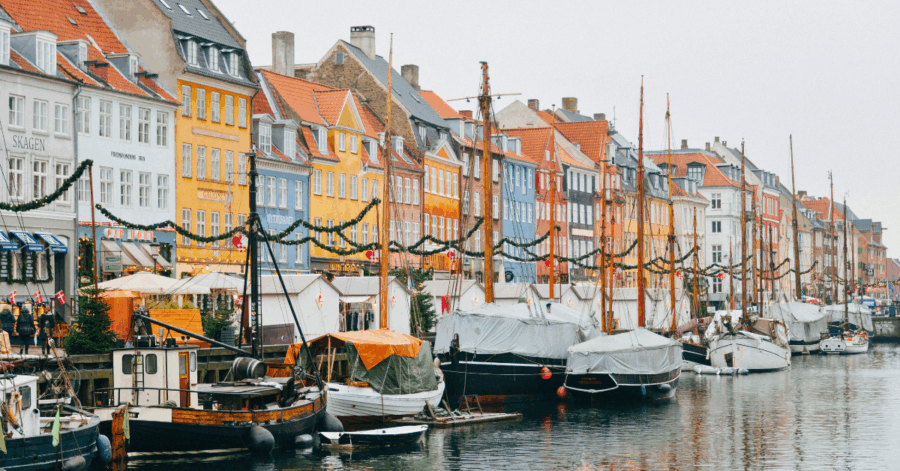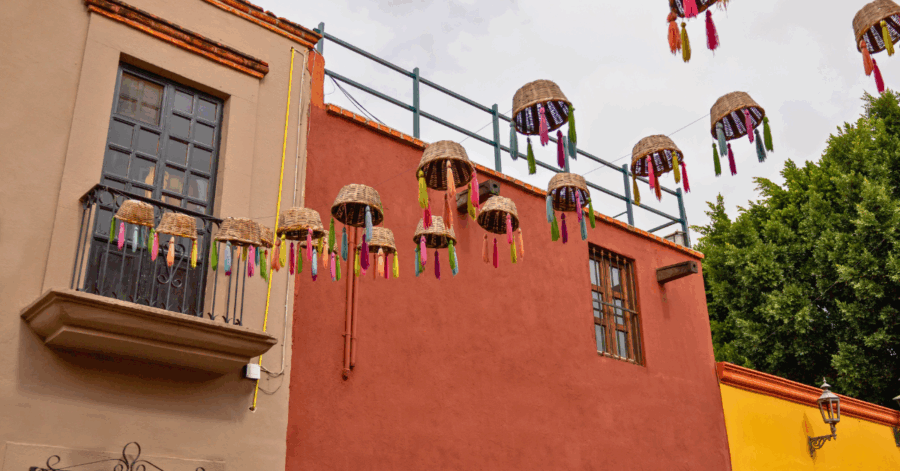This post was contributed by Catherine Andersson, academic records coordinator for Education Abroad, about her experience with cultural identity while abroad.
What does it mean to take yourself abroad? While the physical processes of going through airports, arriving in country, going to local orientations are all valid motions of “being present,” an individual’s mental and emotional reaction to new surroundings can be unexpected. During my time studying abroad in China, my own reactions to the unfamiliar environment surprised me. I thought I was prepared. I wasn’t. I wasn’t ready for the feeling of not being prepared.
Being surprised was unexpected and unpleasant, to say the least. I identify as a type of person who likes to plan her life a year in advance and think of as many possible scenarios that could play out before something happens (especially going abroad for the first time on her own). Yeah… I know what you might be thinking. And let me tell you, I have an anecdote… And no, it’s not the typical “life is full of the unexpected and no one can possibly plan for everything” kind of story. No, that’s not the one. I’m talking about how my reaction to arriving and living in a different cultural space became in itself one of the most significant times of personal growth in my life thus far.
I identify as a first-generation Vietnamese American female who was born and raised all my life in a medium-sized Texas city. Before studying abroad, I struggled with this multifaceted background. I grew up viewing my environment as being two distinct spaces of a circle: the inner, and the outer. The inner space contained my life at home with my immigrant family: taking off my shoes at the door, speaking primarily in Vietnamese, and adhering to traditional customs while eating a meal I didn’t know the name of—much less, the ingredients of. It was a world my parents forged from their history of living in a country I didn’t know. I knew when I put my shoes back on every morning for school, I would head out into the ‘outer’ space: the space I was navigating and forging my own perceptions of. It was where I could grasp the language at the same level as those around me, learning the cultural norms of my world. The line where the spaces met was my front door. I’m still caught in the in-between.
When I decided to study abroad in China, there were several reasons for my choice of location: academic, personal, and professional. As a then-UT-student, going abroad was a requirement for my International Relations and Global studies degree plan. Rumors have it that there is a saying that goes, “I didn’t choose the IRG life, the IRG life chose me,” and I would wholeheartedly agree. I remained curious about my family’s background in Asia, which I point to as the reason for my lifelong interest in Asian studies.
Even after I failed to convince my parents to allow me to go on a rotary program to South Korea in high school, I decided that studying abroad in college was my chance to clutch the world that alluded me growing up. It was waiting for me, and I was eager to go. Though it wasn’t Vietnam, the CIEE: Business, Language, Culture program in Shanghai not only allowed me the opportunity to continue into my third year of Chinese language studies, but I was able to participate in an internship abroad as well. While my parents’ past was out of my reach, China, the up-and-coming economy, sparkled as what I hoped to be the location of my present and future.

Hoped. One month into my program stood as the marker for when my “expectations versus reality” moments hailed down on my cloud of hopes. As I settled into somewhat of a routine with my courses, internship, and personal life schedules, there was a disturbance in the force. A common theme from my conversations appeared within my social interactions in this unfamiliar world that stemmed from a single question: “Are you ABC—American-born Chinese?”
I didn’t expect this question would carry the influence that it did over the different experiences gained from my program. I began to be self-conscious. Navigating through all social experiences involved utilizing the two years of Chinese language ability that I gained. While I was able to understand and be present in basic day-to-day interactions, the feeling slowly crept into how I viewed myself and influenced my openness to participate in the community as I thought I would. I didn’t anticipate: How would it feel to be judged by everyone around you for being an imposter?
Being a language learner in an environment where the language is primarily spoken represented an exponential growth of possible negative judgement upon my abilities. Everyone would notice if I made a mistake. The real reason why that mattered, being fully aware that I was just a student, was because of the question previously mentioned. There were more expectations. Judging by the way I looked, I was told I should be fluent enough, that I should be Chinese enough to adhere to social constructs that “real” foreigners weren’t subject to. When I spoke, I didn’t meet those expectations. When I told them my background and why I was there, it didn’t hold their interest. The glimmer of their excitement was reserved for my non-Asian friends. They looked different, drawing in the curiosity of the people who saw them, for better or worse. That’s why the disappointment came when they turned to me.
I wore a mask of someone who looked familiar and blended into the mostly homogenous society. My effort to engage in my surroundings met futile results for the mask I was born with was not a novelty. I felt like an imposter. How could I explain to myself that I “blended in too much,” when blending in and adapting to fit into your environment’s societal norms was, well—the goal? The feeling of disappointing others who had the expectations of sharing a moment of commonality, of fluency, of shared familial connection to “the Mainland,” left me doubting who I was. Neither definitions of my circle’s inner and outer spaces factored in taking on and questioning a perceived identity that I was expected to have, but didn’t. Being misidentified led me to internalize the disappointment that others felt when they saw me mingling with the ‘real’ cohort of foreigners on my program. The circle of my identity waivered, so I set up walls trying to protect it.
Trying. When I reached the point of realizing my aversion to engaging with locals was because I already began the phases of culture shock, I cried alone in my dorm room alone during the nights my local roommate was away. The sparkle of my hopes for a future in China washed away with each frustration, and I turned to who I knew I was before I arrived. However, while I was looking and reacting towards the external onslaught of expectations, my reflection showed me what others saw all along—that my inner and outer circles were reversed. Outwardly, I am Vietnamese. Inwardly, I am American. My goal of going to China was to partly connect with the identity that always felt just out of reach, my Asian-ness. The ambition and confidence of what I knew to be my circle blinded me from realizing that it was never something that escaped my sight. The image that greets me every morning is proof of that.
What did it mean to take myself abroad? It depends on the environment. The irony of trying to prove myself to be a home-grown Texan in an environment that accepted my outwardly appearance the most brought a bitter taste to my mouth each time I was asked that dreaded question. I rejected being overlooked. I wanted encouragement and engagement to speak Chinese as a foreign language learner. Instead, my concerns and I were brushed off. The bitterness became pungent when I returned to the land in which I was born and raised only to be reminded how my proof of American-ness is often demanded. What my upbringing taught me was that I’ve been justifying my identity my whole life. Part of the overwhelming disappointment I walked away with when I got on the plane to return to home was that the mask I thought I wore, and the shoes I thought I put on, belonged to the image of who I thought I was stepping out the door: Texan American. My experience in China was eye-opening. While I thought I walked in the ‘outer’ space trying to reach the ‘inner’ that contained a heritage I didn’t know, I found myself running around the circle along the line that defines the space in-between.






